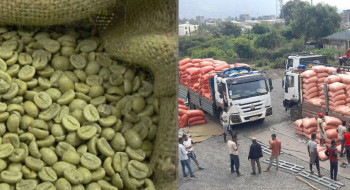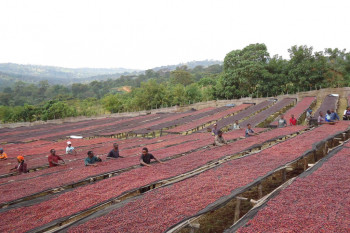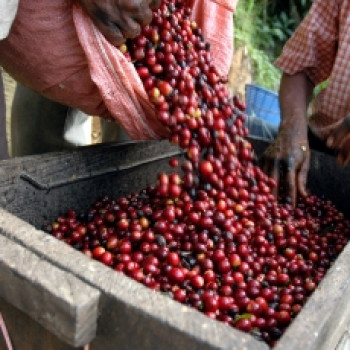
The Ethiopian Commodity Exchange (ECX) has introduced a new pricing mechanism for coffee sold on its trading floor but exporters say the changes do not reflect the high prices erasing their margins in the domestic market.
Officers at the Exchange and officials at the Ethiopian Coffee and Tea Authority say the new pricing system, which is updated weekly based on the New York Arabica Coffee Price and the prevailing exchange rate at the Commercial Bank of Ethiopia, is meant to benefit coffee growers.
A statement from ECX indicates distortions in the country’s exchange rate policy had previously forced it to implement a comparative pricing mechanism accounting for domestic market a nd export prices. However, the recent liberalization of the forex market has enabled it to shift towards the new pricing system, according to the statement.
“Based on this reform, and with the aim to benefit local coffee producers and suppliers from the forex liberalization, ECX has decided to make adjustments to its fixed pricing system for coffee,” it reads.
The Exchange used to set a price range for coffee traded on its floor based on quality. The Authority, meanwhile, sets a floor price for exporters.
This week’s statement says prices will henceforth be determined by taking the weekly New York price, the daily CBE exchange rate, related price adjustments, the cost of preparing coffee for market, and profit margins into account.
ECX determines pricing for coffee transactions in the domestic market, setting a range for trade between suppliers and exporters. On the other hand, the Authority determines the price floor for exports.
The new pricing mechanism will not apply to specialty coffee, according to the statement.
Although officials see the new system as necessary to reverse a market trend where domestic prices far outstrip international ones, coffee exporters who spoke to The Reporter expressed their doubt about the feasibility of the revised pricing mechanism.
They observe that one feresula (a unit equivalent to 17 kilograms) sells for approximately 6,000 birr on the ECX floor, much lower than domestic market prices.
“However, in actuality, we are purchasing a feresula of coffee in the domestic market for 10,000 or 11,000 birr,” said one exporter.
Although sometimes prices can fall as low as 8,000 birr per feresula, it is still significantly higher than what a supplier can hope to get on the ECX floor.
“The Authority and ECX do not recognize this actual market price. They say coffee is still being sold for 6,000 domestically. Tax authorities also do not recognize the prices. So, in reality, we are purchasing and exporting coffee at a loss because the government can not implement the pricing it has introduced,” said an exporter, who spoke anonymously.
Washed coffee sold for between 5,500 and 6,500 birr per feresula on October 31, 2024, according to daily trade data from ECX.
Exporters argue the government’s regulatory measures in the coffee market are making things worse.
“The new directive says coffee pricing is being liberalized but both the Authority and ECX continue to determine prices. The Authority sets the price floor for exports to avoid under-invoicing. Meanwhile, both of them try to align the international pricing system with the domestic pricing system, claiming to benefit local growers and suppliers. But at this point, this action has inflated domestic prices and made the export business difficult,” said the exporter.
He did, however, concede the recent forex market liberalization has significantly benefited coffee exporters.
How the changes will affect the trade of the country’s most valuable export commodity remains to be seen but officials have lofty ambitions for the fiscal year. They target USD two billion from the export of 450,000 tons of coffee before July 2025.







